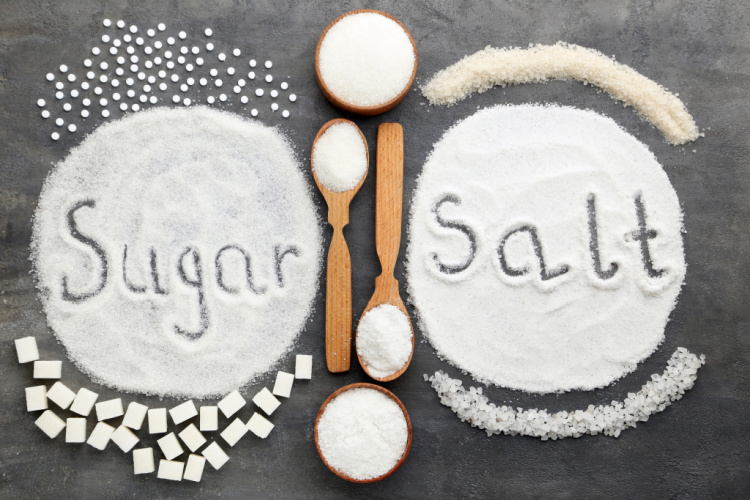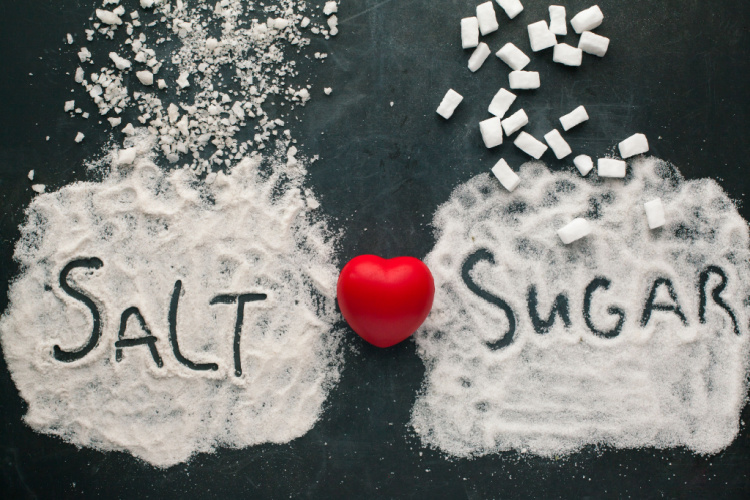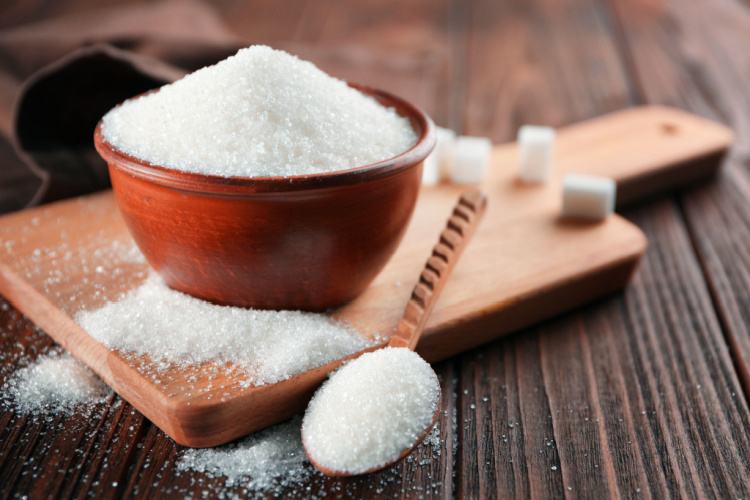Why You Should Be Eating More Salt And Less Sugar
If there is a good versus evil in the world of nutrition, salt and sugar are it. The two white crystals have a similar exterior appearance, yet their interiors are very different.
Sugar is a non-essential macronutrient, whereas salt is made up of two essential minerals, making it an essential micronutrient. Even though salt and sugar make up two of the five human tastes (sweet, sour, salty, bitter, and umami), they behave very differently in the body.

How Your Brain Reacts To Sugar And Salt
Your brain’s reward system receives a significantly stronger signal when you eat refined sugar than when you eat fruit because of the high dopamine release. Your brain then reacts by illuminating like a pinball machine. Unfortunately, when you consume too much sugar, those sweet taste receptors don’t tell you to quit eating.
The desire for sugar increases as you consume more of it, leading to a vicious cycle of dependency. On the other hand, your salt taste receptors “flip” and send you an aversion signal if you consume too much.
In other words, if you eat a meal that contains too much salt, your body has a built-in safety mechanism that makes you crave less salt for the rest of the day. When it comes to controlling the consumption of necessary minerals, particularly one as critical as salt, your body is incredibly intelligent.

How Much Salt Should You Be Consuming?
While every recommendation and health organization would advise you to consume no more than one teaspoon of salt daily, evidence from numerous research suggests that the majority of people should consume between 1 1/2 and 2 teaspoons of salt daily. If you exercise frequently and lose salt in your urine or perspiration, you may need to consume more salt.
In terms of sugar, it’s advised to limit your daily intake to no more than 20 grams (or 5 teaspoons) to protect your health.

A History Of Salt Consumption
The average amount of salt consumed has actually decreased over the past few centuries. In reality, today’s salt consumption is about a fraction of what it was in the 1600s. Everything was salted back then since we didn’t have refrigerators to keep our food fresh. There were no cases of obesity, diabetes, or hypertension during this period of salt overindulgence. The average person back then consumed very little sugar and instead ate real, whole foods and consumed large amounts of salt.
Just a few hundred years ago, the average person only ate a few pounds of sugar annually. Since sugar is more readily available, the average annual intake has soared to 152 pounds per person.

Sugar’s Addictive Qualities
The truly addictive white crystal is sugar, not salt. Indeed, sugar ticks all the boxes for being an abusive substance, and the addiction to sugar may potentially be treated with salt.
Increased salt consumption may actually lessen sugar cravings and even lessen the pleasure you receive from consuming sugar. Sodium depletion sensitizes the reward system, making sugar more alluring.
In contrast to sugar, salt also seems to be good for our brains. In fact, glucose inhibits the intake of vitamin C while salt promotes its entry into the brain. Additionally, sugar depletes the body of B vitamins, such as thiamine, which is crucial for maintaining brain health. This implies that whereas excessive sugar consumption is bad for the brain, eating salt is beneficial and even necessary.
Additionally, salt can aid in digestion. Sodium and chloride are the two fundamental minerals that make up salt. Chloride is required for the development of stomach acid, which aids in food digestion and the absorption of nutrients.

Consuming More Salt Has Its Advantages
Salt is once again the white stone in shining armor when it comes to the condition of your bones. Every dietary recommendation urges us to limit our salt intake, but doing so might deplete the body’s stores of calcium and magnesium. When we consume less salt, the body appears to remove sodium, calcium, and magnesium from the bones, perhaps raising our risk of osteoporosis. Due to the body’s need to retain its limited sodium stores, low-salt diets also result in an increase in the loss of magnesium through sweat.
The health of our bones may suffer as a result of all of this. In reality, a diet heavy in sugar is obviously hazardous, yet ingesting more salt may protect your bones. Think again the next time you reach for the sugar bowl; you might wind up saving your life by reaching for the salt shaker instead.
